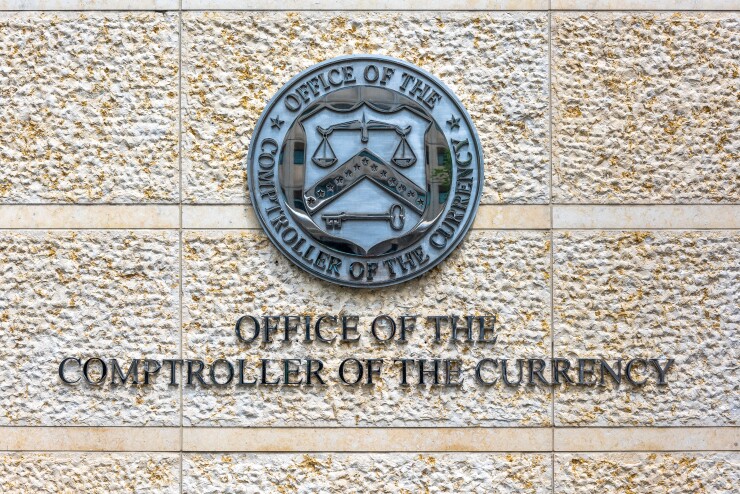The Bancorp Bank's
"This is about what the next decade looks like for us," said Greg Garry, the bank's chief operating officer.
The $7.1 billion-asset bank, founded in 1999 by
Its conversion to a national bank spotlights several trends in the
The Delaware bank, which is also seeking to move its headquarters to South Dakota, says a national charter will allow it to more easily expand across the country as it builds on its banking-as-a-service business model.
According to Garry, fintechs generally start in one of three verticals — payments and deposits, lending or wealth management — but, "what all fintechs have come to realize is you need to be in at least two if not all three to be profitable long term," he said.
Payments and deposits are already substantial businesses for Bancorp.
"Having a national license versus a state license makes it easier for us to support our payments clients as they work into the lending spaces because you have a national set of rules you operate by as opposed to state-by-state rules," Garry said. He predicts the bank will become more involved in fintech lending, "but only with the right partners for the right products."
Still, the Bancorp's move was surprising.
"The OCC seems to be cracking down on sponsor banking and yet it looks like the Bancorp is walking out of the frying pan and into the fire," said Jonah Crane, partner at the financial services advisory firm Klaros Group.
As one example, in September, the OCC reached an
Garry says the Bancorp is well equipped for OCC supervision.
"The OCC has probably been the most forward about the need to be inclusive of fintechs in the U.S. financial system and the need to innovate, but also about the risks that being a partner bank brings to the financial system," he said. "We bring [approximately 20] years of experience. We have well-tested systems when it comes to compliance and risk management." Garry said that more than 60% of the staff works in some form of operations and risk management.
Crane agrees that the OCC recognizes the value in sponsor banking even as it cracks down on the practice.
"There are all kinds of advantages, particularly for smaller banks, in leveraging fintech partnerships to find new sources of growth and revenue, and a new way to engage a customer base they otherwise wouldn't have access to," he said. "For the smaller banks it's probably existential that they find ways to engage here."
If Bancorp's lending business grows, it may benefit from another move it is making: migrating headquarters from Wilmington, Delaware, to Sioux Falls, South Dakota.
"It's a very bank-friendly community, but it's also a rich talent pool of bank professionals, especially in the credit card industry," said Garry.
Crane points out that the lack of usury laws in South Dakota make it attractive for credit card companies. "If they intend to do more lending programs, this would allow them to benefit from favorable interest rate laws," he said. "Combined with the fact they will be an OCC bank, they would have more certainty in exporting their interest rates nationally."
Finally, a national charter could make the bank more attractive to potential fintech partners.
The OCC has identified at least 10 banks that it regulates with banking-as-a-service partnerships, according to remarks made by acting Comptroller Michael Hsu at a conference of bankers in New York hosted by the Bank Policy Institute and the Clearing House Association. Klaros Group estimates there are 87 sponsor banks in all, with most being state-chartered and regulated by the Federal Deposit Insurance Corp.
"The fact that they are converting to a national charter at this moment will send the signal that they take compliance seriously that meets the standards of the most rigorous supervisor in the country," said Crane. "If I'm a fintech, that's a pretty good sign in today's environment that I will have a stable, well-regulated partner."







